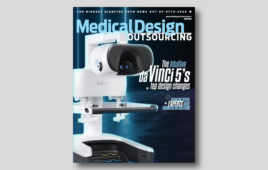
[Image courtesy of Jon Tyson on Unsplash]
O’Neill has made controversial statements about the federal safety watchdog, including in 2014 when he said that the agency should no longer evaluate whether medical devices or drugs are effective when considering them for approval.
“We should reform FDA so that it’s approving drugs after their sponsors have demonstrated safety and let people start using them at their own risk, but not much risk of safety,” O’Neill said, according to The Hill. “But let’s prove efficacy after they’ve been legalized.”
The comment was viewed harshly by experts, with some saying that it demonstrates how O’Neill’s lack of medical experience could be a problem. A medical background is usually considered a prerequisite for the position as FDA chair.
Peter Pitts, a former FDA associate commissioner under President George W. Bush, pointed out that it’s nearly impossible to separate safety and efficacy when considering pharmaceuticals.
“People need to understand that safety doesn’t exist without the balance of risk,” Pitts told the website, explaining that “every drug has risks” with the example of side effects that might be acceptable for a lung cancer drug but not aspirin.
It is still unclear whom Trump will nominate; anyone he selects will have to be confirmed by the Senate. Former FDA official Dr. Scott Gottlieb is also reportedly under consideration.
Experts have also expressed alarm over O’Neill’s interest in anti-aging products and his claim that immortality could be a possibility within the next 40 years.
“You can tell a lot about an era by listening to what people whine about,” O’Neill has said. “If we invest wisely in life extension technologies, in 40 years, we’ll all be able to annoy our friends with complaints like ‘immortality almost never works.'”
O’Neill has served as principal associate deputy secretary of the Health & Human Services Dept. under the 2nd President Bush.
“He is stunningly unqualified in terms of his understanding of medicine,” director of Public Citizen’s health research group Dr. Michael Carome said, noting that he was “just stunned” when he heard that Trump was mulling O’Neill as FDA chief.
O’Neill has also made suggestions that people should be allowed to be paid to donate their organs, an idea that is largely rejected by healthcare experts.
“There are plenty of healthy spare kidneys walking around, unused,” he once said, according to Stat News.
Diana Zuckerman, president of the National Center for Health Research, said that O’Neill’s proposals, particularly about excluding efficacy when considering a drug for approval, could cause chaos between insurance companies and the drugs they decide to cover.
“It would throw the entire U.S. healthcare system into turmoil,” she said.




![A photo of the Medtronic GI Genius ColonPro polyp detection system flagging a potential sign of colon cancer during a colonoscopy. [Photo courtesy of Medtronic]](https://www.medicaldesignandoutsourcing.com/wp-content/uploads/2024/04/Medtronic-GI-Genius-doctors-268x170.jpg)